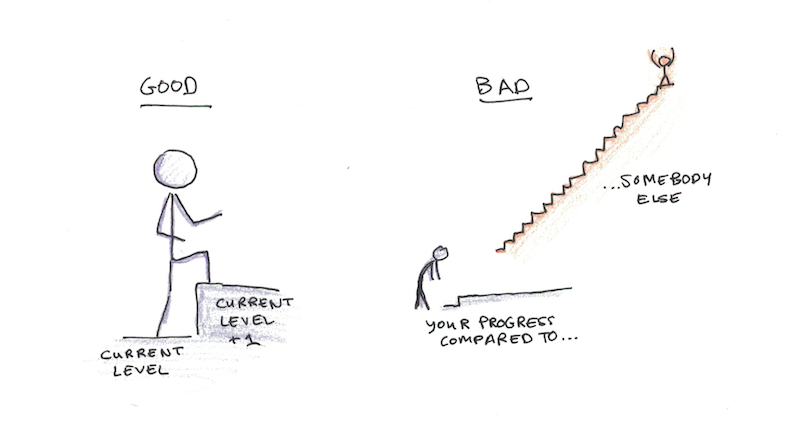Trust, but Verify!

Who can you trust? In security we say "Trust but verify! "
Who Do You Trust?
Can you ever really know who to trust at the office or at home, in your community?
While there’s tons of research on the actions and behaviors that create trust, few studies have successfully identified what makes some people more trustworthy than others to begin with. Research published in the Journal of Personality and Social Psychology does just that, showing that “guilt proneness”—a person’s tendency to anticipate feeling guilty—is a surprisingly powerful indicator of trustworthiness.
The researchers, from the business schools at the University of Chicago, the University of Pennsylvania, and Carnegie Mellon, sought to predict trustworthy behaviors and intentions, especially within an organizational context. They set up economic games and surveys to measure traits like extraversion, openness, agreeableness, neuroticism, conscientiousness, and guilt-proneness.
In one exercise, colloquially known as the “trust game,” participants received money from a partner, and were then told the money had doubled in value. The participant is expected to return half of the earnings to their partner, though they can choose to keep the money for themselves. In another game, the participant could either lie or tell the truth about a set of information, which their partner would then rely on to make a decision. The participant is given a personal incentive to lie, but of course lying is untrustworthy in that it harms the partner, who is made to rely on false information.
Personality my “trust game,” participants received money from me, a partner, and were then told the money had doubled in value. A little background is in order I've had the following 'game' afoot, agreements with my GF and/or wife about money for example, I'd ask that we create a joint account or get access to her account say a credit union. I would put in this 'household' account 'bout $10 - 20K for mutual "household" expenses, with investment vehicles to double amount, she is to also contribute a like amount. I'd put in $10,000, let's say. The object being to get enough money for a down payment on a dwelling house or condo. Invariably the money would disappear and her 1/2 ( $10,000, deposit per agreement ) would never appear, placed in account or get deposited, and I would lose access to the money. But her mother's house gets remodeled in the Philippines (just a coincidence am told). When confronted she says the money never made it into the account or investment vehicle like a CD.
In each exercise, the researchers found evidence that guilt-proneness ( measured separately in questionnaires about how the subjects would feel in different scenarios, like hitting an animal with their car, laying down on a grassy knoll and finding a now dead baby rabbit underneath you, standing up a friend in a date or missing lunch with a friend ) positively and significantly predicted trustworthiness, far more than any other indicator of trustworthiness tested.
Hypothesis: “We theorized that guilt-proneness predicts trustworthiness because people who are high in guilt-proneness feel more responsible for others,” says Emma Levine, an assistant professor at University of Chicago’s Booth School of Business, “and this is exactly what we found.”
'Guilt-proneness, ' is not the same as feeling guilty, and this distinction is key to understanding why guilt-proneness is a positive trait, especially as it relates to trustworthiness.
“Guilt is a discrete, negative, self-conscious emotion that is evoked in response to wrongdoing. People experience guilt as a result of committing a transgression, and that emotional experience elicits reparative behavior,” in my personal example the gf or wife would become obese, from seeking comfort in over eating ( and manifest associate illnesses: diabetes-2, joint issues, coronary etc. ). Levine explains. “In contrast, guilt-proneness—[which] captures the anticipation of guilt over wrongdoing—causes people to avoid transgressing in the first place.” In my personal case bf/wife would hate to create or be part of a scandal.
We typically think about guilt as a signal that someone did do something wrong, which is why it’s seen as a character flaw. But feeling guilty about wrongdoing is a good thing, Levine says, whereas doing something wrong and not feeling guilty would be problematic, as it suggests a lack of remorse and no intention to repair or make amendes for your transgressions.
So, how does this research translate to work? Levine investigated organizational impact in her final study, where participants signed either a code of conduct asking them to act responsibly and ethically or read a set of instructions reminding them that most people in the study were selfish.
“In other words, we primed participants with either a sense of interpersonal responsibility or with selfishness,” she explains. “We found that participants who signed the code of conduct were much more likely to be trustworthy within the trust game. This result suggests that reminding employees of the importance of responsibility, and making codes of conduct salient, may help create a culture of trustworthiness.”
Though anticipating guilt can be uncomfortable, guilt-prone employees should remember that this trait will likely prevent them from committing violations at work. That means you may suffer a stolen lunch, but at least you won’t be the thief. In the long run, that’ll keep you far more satiated.







Comments
Post a Comment